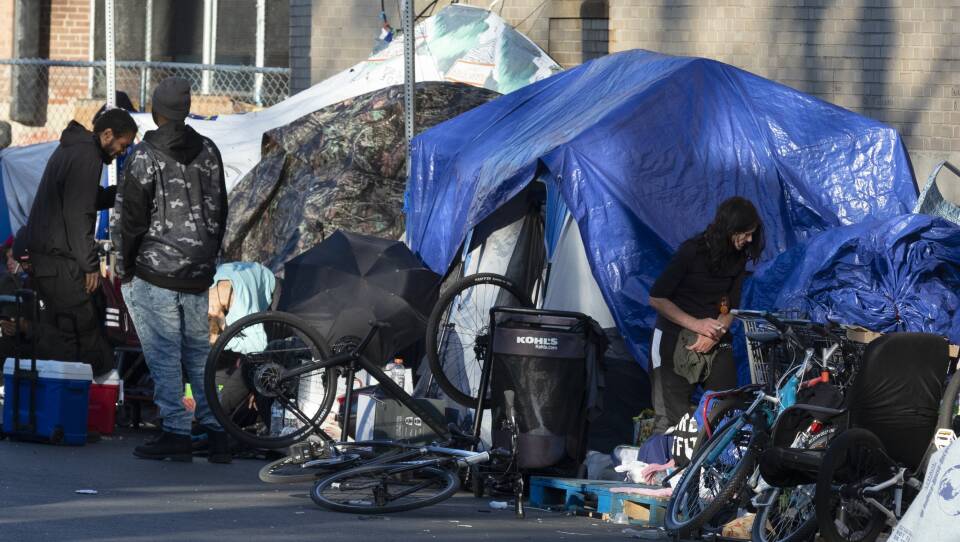The state’s Supreme Judicial Court is deciding whether to stop the City of Boston’s effort to dismantle the homeless encampments around Mass. and Cass.
The ACLU of Massachusetts brought the case against Boston on Friday , seeking an immediate injunction. The nonprofit organization argues that the clean-up operation is unconstitutional, violating the property rights and disability rights of those that have lived by the intersection of Massachusetts Avenue and Melnea Cass Boulevard, often referred to as Mass. and Cass.
More Local News
“It’s just getting the cart before the horse. Do not clear out someone’s encampment until you have a good-faith reason to believe they are back to some place that’s appropriate for them to go,” ACLU attorney Ruth Bourquin argued before the court.
Acting Mayor Kim Janey’s administration last month declared that the substance use disorder and homelessness were a public health emergency in Boston. Janey also signed an executive order to increase enforcement of removing tents from public ways, a clearing out that began as early as Sunday, Oct. 31, when notices were placed on tents near Mass. and Cass.
Lawyers for the city said they have housed more than 60 people of the roughly 350 that lived near the area, per a city survey, and argued that the public health and safety risks at the site justify the clean-up operation.
“There's significant government interest in removing the individuals from these encampments for safety and public health reasons,” Lisa Maki, representing the city, told the court Tuesday. “There have been six homicides here in the last 11 months, 22 unintended deaths, 13 sexual assaults, 122 aggravated assaults and EMS has responded 4,000 times.”
Bourquin argued that the city is violating people’s property rights and criminalizing homelessness by forcibly removing them and seizing left-behind items, particularly when people were given 48 hours to clear out.
“To destroy it without holding on to it, to give people a chance to reclaim it — even if it was so urgent to get it out of there right now — to not preserve all the things that are not themselves dangerous is an unreasonable seizure,” Bourquin said. “There are people, many of them, all their worldly possessions are with them. They’re given 48 hours.”
Taking tents and making people leave the area does not address the fundamental problems that led to the large group of people living there, ACLU Massachusetts’ executive director Carol Rose argued on Boston Public Radio Tuesday, Nov. 2.
“The roots of the crisis at Mass and Cass — it’s substance use disorder, mental health, economic justice — but mostly it’s a housing shortage problem,” she said. “The ACLU has been very clear throughout, we can’t arrest our way out of the situation at Mass. and Cass, but, in fact, we have to start with housing first.”
The presiding judge, Justice Frank M. Gaziano, said he was taking the arguments under advisement.









